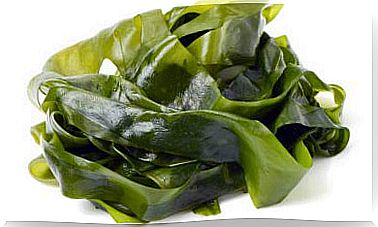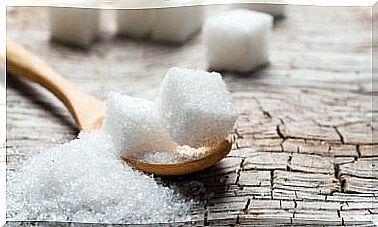10 Common Vitamin Deficiencies And Their Solution
It is likely that we will not relate it, but both the incidence of hangnails and the appearance of dandruff may be due to a lack of vitamins, so it is advisable to review the diet.

Do you suffer from acne or bad breath? Many common health problems are caused by vitamin deficiencies that can be found naturally in certain foods. Vitamins are essential to carry out a large number of physical processes in the body. Therefore, the fact that we are missing, suppose a waste for it.
To ensure that all required vitamins are obtained, a varied diet must be followed. Including vegetables in abundance will avoid suffering from deficiencies of many essential nutrients for health.
Vitamin deficiencies: Derivative problems and their solution
Next, we offer a list of the consequences of vitamin deficiencies and their possible solution.
1. Acne
Acne is a fairly common condition characterized by the presence of seborrhea, pimples and pimples on the skin of the face and body. Its appearance is quite common during adolescence. But if the acne does not disappear or reappear in later years to adolescence may be due to a deficiency of vitamins A, B2, B6, C and D.
2. Bad breath

One of the most common vitamin deficiencies is vitamin B, mainly among vegetarians. This vitamin is vital for good digestion. When it is lacking, it can decrease the amount of enzymes that fight bacteria in the mouth and digestive tract. Nutritionists indicate that with 50 mg of niacin a day we can avoid bad breath.
3. Chapped lips
The lips are an external organ of the body that does not usually present serious problems of vitamin deficiencies. Biologically, lips require more attention and care during winter. This is because the skin generates certain natural oils that generate the necessary moisture but in cold weather, this moisture is lost. Chapped lips are prevented with vitamin E, which acts as a powerful antioxidant.
4. Dandruff

Dandruff originates when there are excess dead cells on the scalp. We all have a normal amount of dead cells. But if there is an excess, there is already a problem. The main causes of dandruff are seborrheic dermatitis, excess shampoo, psoriasis, fungi, deficiencies of B vitamins, zinc and magnesium.
5. Stepparents
You have probably noticed that during the winter months you have an increase in hangnails on your fingers. This is because cold weather considerably dries out your skin. This effect is increased by certain corrosive chemicals or the constant immersion of the hands in water. Vitamin deficiencies causing this problem is solved consuming proteins, folic acid and vitamin C.
6. Dry skin

Millions of people are looking for an alternative to keep skin looking smoother and more hydrated. It must be remembered that it can be a characteristic of the person caused by genetics. In case you see that this is a problem that has appeared recently, or you are aware that your diet is not very varied, you may have vitamin deficiencies and consume little water. If this is your situation, try to include foods rich in vitamin A and C that will restructure your dermis.
7. Athlete’s skin
Vitamins D2 and D3 are necessary for proper skin care, according to a study published in Skin Pharmacology and Physiology . Its deficiency can lead to the appearance of various diseases such as athlete’s foot. These two vitamins require calcium for their proper absorption. You need 10 micrograms of vitamin D a day, but most only get half or less.
8. Jaundice

This condition causes the whites of the eyes and skin to turn yellow due to excess bilirubin. Jaundice can occur at any age and is caused by blood diseases, genetic syndromes, hepatitis, infections, and certain medications. Vitamin deficiencies that occur after jaundice include A, D, E, and K. In some cases, a lack of vitamin B12 has also been shown to cause this problem.
In this case, jaundice could be caused by hemolysis (destruction of red blood cells, intra or extravascular), hepatitis or jaundice-obstructive sx. For this reason, their treatment will be the basic cause, and in all of them there could be a vitamin deficiency, but it is not what causes jaundice, but its consequence.
9. Paleness
The pigmentation of the skin is due to the presence of melanin that depends on various genetic factors, the amount of time we expose ourselves to sunlight … There are also vitamin deficiencies that can negatively affect the color of the skin. Vitamin C helps produce collagen, and a lack of this vitamin leads to extreme paleness, damage to the skin and blood vessels, and even tooth loss.
It is enough to consume 80 milligrams of this vitamin a day. Lack of folic acid or vitamin B12 can also cause the skin to lose pigmentation. This vitamin is vital in the production of energy and red blood cells. In addition, when we do not consume enough vitamin B9 we are at risk of anemia, another situation that causes us to look pale. We must consume a total of 400 micrograms per day.
10. Vision problems

The antioxidant vitamins (A, C, E and beta-carotenes) along with the B complex, are very important for our eye health. This is stated in a study published in Sub-cellular Biochemistry. Even a slight vitamin A deficiency can cause eye strain, sensitivity to light, dryness, and an increased chance of eye infection.
When deficiencies are severe, there may be ulcers, corneal problems and blindness, in the worst case. Vitamin A is essential to improve night vision. Vitamin B complex deficiencies cause sensitivity to light, paralysis of the eye muscles, a burning sensation, and excessive tearing.
Lack of vitamins has consequences
In conclusion, vitamins can only be obtained through diet or supplements. The body does not produce them. Therefore, we recommend you eat a balanced diet and see your doctor or nutritionist at least once a year. As we have seen, vitamin deficiencies can have health consequences.









